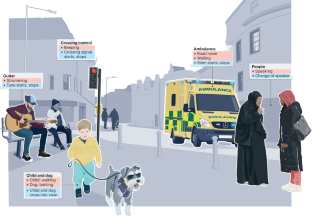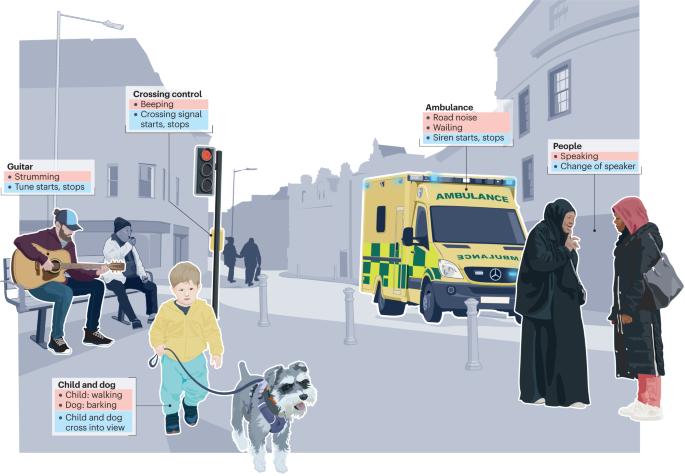The role of auditory source and action representations in segmenting experience into events
IF 16.8
Q1 PSYCHOLOGY, MULTIDISCIPLINARY
引用次数: 0
Abstract
Sounds are generated by interactions between objects in the world and carry information about the sound’s sources and the objects’ sound-generating actions. This dual nature of auditory information poses a problem for defining and investigating auditory object representations in staged theories of perception. In this Review, we describe a framework for separating auditory source and action representations. Auditory source and action representations differ from each other in how they are formed, their relation to prediction, the information they carry, how they are experienced and remembered, and the brain responses associated with them. We also suggest that auditory source and action representations are part of event segmentation: structuring information about the environment and what is happening in it. In real life, auditory scenes are resolved together with other modalities, producing an integrated episodic description of the environment. Thus, event segmentation can guide the integration of information from different modalities and mediate the effects of learned knowledge on auditory scene analysis. We end by discussing how these insights offer important advantages for the development of more comprehensive theories and computational models of sound perception in natural scenes. Sounds are generated by interactions between objects in the world. In this Review, Winkler and Denham describe how representations of sources and actions enable humans to segment complex auditory experience into meaningful units.


听觉来源和行动表征在将经验划分为事件中的作用
声音是由世界中物体之间的相互作用产生的,并带有关于声音来源和物体发声动作的信息。听觉信息的这种双重性质给阶段性感知理论中听觉对象表征的定义和研究带来了难题。在这篇综述中,我们描述了一个分离听觉声源和动作表征的框架。听觉源表征和动作表征在形成方式、与预测的关系、所携带的信息、体验和记忆方式以及与之相关的大脑反应等方面存在差异。我们还认为,听觉源表征和动作表征是事件分割的一部分:将有关环境和环境中发生的事情的信息结构化。在现实生活中,听觉场景与其他模态一起被解析,从而产生对环境的综合描述。因此,事件分割可以引导不同模态信息的整合,并调节所学知识对听觉场景分析的影响。最后,我们将讨论这些见解如何为开发自然场景中声音感知的更全面理论和计算模型提供重要优势。
本文章由计算机程序翻译,如有差异,请以英文原文为准。
求助全文
约1分钟内获得全文
求助全文

 求助内容:
求助内容: 应助结果提醒方式:
应助结果提醒方式:


